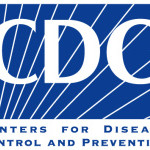- Industria: Government
- Number of terms: 6326
- Number of blossaries: 0
- Company Profile:
The complex system in the body responsible for fighting disease. Its primary function is to identify foreign substances in the body (bacteria, viruses, fungi or parasites) and develop a defense against them. This defense is known as the immune response. It involves production of protein molecules called antibodies to eliminate foreign organisms that invade the body.
Industry:Health care; Pharmaceutical
Protection against a disease. There are two types of immunity, passive and active. Immunity is indicated by the presence of antibodies in the blood and can usually be determined with a laboratory test. See active and passive immunity.
Industry:Health care; Pharmaceutical
The process by which a person or animal becomes protected against a disease. This term is often used interchangeably with vaccination or inoculation.
Industry:Health care; Pharmaceutical
When the immune system is unable to protect the body from disease. This condition can be caused by disease (like HIV infection or cancer) or by certain drugs (like those used in chemotherapy). Individuals whose immune systems are compromised should not receive live, attenuated vaccines.
Industry:Health care; Pharmaceutical
Capable of spreading disease. Also known as communicable.
Industry:Health care; Pharmaceutical
Redness, swelling, heat and pain resulting from injury to tissue (parts of the body underneath the skin). Also known as swelling.
Industry:Health care; Pharmaceutical
A highly contagious viral infection characterized by sudden onset of fever, severe aches and pains, and inflammation of the mucous membrane.
Industry:Health care; Pharmaceutical
Yellowing of the skin and eyes. This condition is often a symptom of hepatitis infection.
Industry:Health care; Pharmaceutical
An abnormal change in the structure of an organ, due to injury or disease.
Industry:Health care; Pharmaceutical
A vaccine in which live virus is weakened (attenuated) through chemical or physical processes in order to produce an immune response without causing the severe effects of the disease. Attenuated vaccines currently licensed in the United States include measles, mumps, rubella, shingles (herpes zoster), varicella, and yellow fever. Also known as an attenuated vaccine.
Industry:Health care; Pharmaceutical
